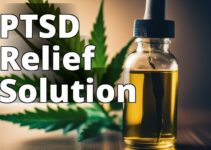What readers will learn by reading this article:
- The definition and properties of Delta-8 THC and how it compares to Delta-9 THC and CBD.
- The legal status of Delta-8 THC under federal law and varying state laws and regulations.
- The potential legal consequences, regulatory concerns, and law enforcement actions associated with selling Delta-8 THC products.
What Are the Legal Consequences of Selling Delta 8 THC Products?
Delta 8 THC has gained significant attention in recent years due to its potential therapeutic benefits and similarities to Delta 9 THC, the primary psychoactive compound found in cannabis. However, the legal status of Delta 8 THC is still a subject of debate and confusion. It is crucial for businesses and individuals involved in the sale of Delta 8 THC products to understand the potential legal consequences associated with this emerging market.
Understanding Delta-8 THC
Definition and properties of Delta-8 THC
Delta-8 THC, also known as delta-8-tetrahydrocannabinol, is a cannabinoid that occurs naturally in cannabis plants. It is a structural analog of Delta 9 THC, sharing many similar properties but with some distinct differences. Delta-8 THC is psychoactive, meaning it can produce intoxicating effects, although they may be milder compared to Delta 9 THC. This compound binds to the cannabinoid receptors in the body's endocannabinoid system, resulting in various physiological and psychological effects.
Comparison with Delta-9 THC and CBD
Delta-8 THC is often compared to Delta 9 THC and CBD due to their similarities and differences. While Delta-9 THC is well-known for its intoxicating effects and is classified as a Schedule I controlled substance under federal law, the legal status of Delta-8 THC remains uncertain. CBD, on the other hand, is non-intoxicating and has been legalized at the federal level with certain restrictions.
Delta-8 THC is structurally different from Delta-9 THC, but it still possesses psychoactive properties. This distinction has led to debates about its legal classification and regulatory oversight. Consumers are drawn to Delta-8 THC products as they offer a potentially more mild and manageable psychoactive experience compared to Delta 9 THC.
Market demand and consumer interest in Delta-8 THC products
The market demand for Delta-8 THC products has been steadily increasing as consumers seek alternative options to traditional cannabis products. Many individuals are intrigued by the potential therapeutic benefits of Delta-8 THC, such as its reported ability to relieve pain, reduce anxiety, and stimulate appetite. Additionally, some consumers find the milder psychoactive effects of Delta-8 THC appealing, especially those who may be sensitive to the stronger effects of Delta 9 THC.
However, it is essential to note that the sale and distribution of Delta-8 THC products are subject to legal regulations, and businesses operating in this market must be aware of the potential consequences.
Legal Status of Delta-8 THC
The legal status of Delta-8 THC is complex and varies between federal and state jurisdictions. Understanding the legal landscape is crucial for businesses and individuals involved in the sale of Delta-8 THC products.
Examination of the legal status of Delta-8 THC under federal law
Under federal law, the Controlled Substances Act (CSA) classifies Delta-9 THC as a Schedule I controlled substance. However, the legal status of Delta-8 THC remains less clear. Some argue that Delta-8 THC derived from hemp, which contains less than 0.3% Delta-9 THC, is legal under the 2018 Farm Bill. This legislation legalized hemp and its derivatives, including cannabinoids, as long as they meet specific criteria.
The Drug Enforcement Administration (DEA) has taken the position that all synthetically derived cannabinoids, including Delta-8 THC, are considered Schedule I controlled substances. However, there is ongoing debate and legal challenges surrounding this classification.
Analysis of varying state laws and regulations regarding Delta-8 THC
While federal law sets a baseline, individual states retain the authority to enact their regulations concerning Delta-8 THC. Some states have specifically addressed the legality of Delta-8 THC, either by explicitly prohibiting it or allowing its sale under certain conditions.
For example, states like Colorado, California, and Oregon have legalized recreational cannabis, which includes Delta-8 THC products. On the other hand, states such as Alaska, Arizona, and Arkansas have explicitly banned Delta-8 THC.
It is crucial for businesses and individuals to familiarize themselves with the specific laws and regulations of the states in which they operate or reside to ensure compliance and mitigate legal risks.
Potential conflicts between state and federal laws
One of the significant challenges in the legal landscape of Delta-8 THC is the potential conflicts between state and federal laws. While a state may permit the sale and use of Delta-8 THC, it does not necessarily mean it is legal under federal law.
These conflicts can result in confusion and legal complications for businesses operating in the Delta-8 THC market. It is essential to seek legal counsel to navigate the complex legal landscape and ensure compliance with both state and federal regulations.
Regulatory Concerns and FDA Warnings
Explanation of the FDA's stance on Delta-8 THC products
The Food and Drug Administration (FDA) has expressed concerns about the sale and use of Delta-8 THC products. The FDA has not approved these products and warns consumers about the potential health risks they may pose.
According to the FDA, Delta-8 THC products have not been evaluated for safety and efficacy, and their long-term health effects are not well understood. The agency cautions against the marketing of unapproved products with unsubstantiated therapeutic claims, as it is a violation of federal law.
Discussion of the risks associated with consuming Delta-8 THC
Consuming Delta-8 THC products carries potential risks and adverse effects. Delta-8 THC can have more potent effects than naturally occurring THC, leading to increased intoxication and impairment. Consumers may experience side effects such as anxiety, paranoia, dry mouth, and increased heart rate. Additionally, Delta-8 THC products being sold without proper quality controls may contain harmful chemicals or contaminants.
Overview of adverse events and health concerns reported to the FDA
The FDA has received reports of adverse events related to Delta-8 THC products, including hospitalizations and death. These reports highlight the importance of ensuring product safety and quality control within the Delta-8 THC industry.
The FDA actively monitors the market and takes action against companies that violate regulations and pose a risk to public health. Consumers are encouraged to report complaints and adverse events to the FDA to help protect public safety.
As we continue the article, it is important to note that the legal consequences of selling Delta-8 THC products can vary depending on the jurisdiction and specific circumstances. The information provided here is intended to provide a general overview and should not be considered legal advice. If you are involved in the sale of Delta-8 THC products, it is crucial to consult with a criminal defense attorney to understand the specific legal implications and potential defenses available to you.
Law Enforcement Actions
Examination of arrests and prosecutions related to the sale of Delta-8 THC products
The sale of Delta-8 THC products can have legal consequences, despite claims of legality. Law enforcement agencies have taken differing positions on the legality of Delta-8 THC, leading to arrests and prosecutions in some cases. The Drug Enforcement Administration (DEA) considers all synthetically derived cannabinoids, including Delta-8 THC, as Schedule I controlled substances, which can result in criminal charges.
Disputes between law enforcement agencies regarding the legality of Delta-8 THC
There are ongoing disputes between law enforcement agencies regarding the legal status of Delta-8 THC. Some law enforcement agencies argue that Delta-8 THC products are not protected by the hemp exemption, while others may interpret the law differently. These disputes contribute to the uncertainty surrounding the legal consequences of selling Delta-8 THC products.
Impact on businesses, including closures and legal consequences
The legal ambiguity surrounding Delta-8 THC has had a significant impact on businesses operating in this industry. Some businesses have faced closures, seizures of their products, and legal consequences due to conflicting interpretations of the law. It is crucial for businesses to carefully assess the legal risks and potential consequences before engaging in the sale of Delta-8 THC products.
Case Study: Legal Consequences of Selling Delta 8 THC Products
John's Story: A Legal Battle for Selling Delta-8 THC
John was an entrepreneur who had recently ventured into the booming market of Delta-8 THC products. With the rising consumer interest and demand, John saw an opportunity to capitalize on this growing trend. He believed that selling Delta-8 THC products would be a lucrative business venture.
However, John soon found himself entangled in a legal battle that he hadn't anticipated. Despite his research on the legal status of Delta-8 THC, he failed to fully understand the complex and evolving regulations surrounding the product.
One day, law enforcement officers raided John's store and seized all his Delta-8 THC products. He was arrested and charged with the illegal sale of controlled substances. John was shocked and confused, as he believed he was operating within the boundaries of the law.
As his case progressed, John faced mounting legal consequences. He discovered that the legal status of Delta-8 THC varied from state to state, with some states deeming it illegal while others allowed its sale under certain conditions. This discrepancy between state and federal laws added another layer of complexity to his legal battle.
John sought the assistance of a criminal defense attorney who specialized in drug-related offenses. Together, they navigated the intricate legal landscape, building a defense case based on relevant state and federal laws. They argued that John had taken reasonable steps to ensure compliance with the law and had been misinformed about the legality of Delta-8 THC products.
After months of legal proceedings and mounting legal fees, John's case reached a resolution. He was fortunate to have a knowledgeable attorney who successfully negotiated a plea deal with reduced charges. John learned a valuable lesson about the importance of understanding and complying with the ever-changing legal landscape surrounding Delta-8 THC.
John's case serves as a cautionary tale for those considering entering the Delta-8 THC market. It underscores the potential legal consequences and risks associated with selling Delta-8 THC products. It is crucial for individuals in the industry to stay updated on legal developments, consult with legal experts, and ensure compliance with all applicable laws and regulations.
Legal Defenses and Strategies
Importance of consulting a criminal defense attorney if arrested for selling Delta-8 THC
If you are arrested for selling Delta-8 THC products, it is essential to seek legal representation from a criminal defense attorney who specializes in drug-related cases. A knowledgeable attorney can help navigate the legal complexities, assess the strength of the prosecution's case, and develop an effective defense strategy tailored to your specific circumstances.
Navigating the legal complexities and potential defenses for selling Delta-8 THC
Navigating the legal complexities of selling Delta-8 THC products requires a thorough understanding of both federal and state laws. Your defense attorney can assess the evidence against you, explore potential legal defenses, such as arguing for compliance with state law, and help you make informed decisions about your case.
In conclusion, the legal consequences of selling Delta-8 THC products can be significant and vary depending on federal and state laws, as well as law enforcement actions. Businesses and individuals involved in this market must stay informed about the evolving legal landscape, seek legal advice, and ensure compliance with applicable regulations to mitigate potential legal risks.
Questions & Answers
What are the legal consequences of selling delta 8 THC?
Selling delta 8 THC without proper licenses can result in fines and legal penalties.
How can I avoid legal consequences when selling delta 8 THC?
Obtain the necessary licenses and comply with state and federal regulations.
What happens if I sell delta 8 THC without a license?
Selling without a license can lead to legal action and potential criminal charges.
Who enforces the regulations on selling delta 8 THC?
State and federal law enforcement agencies monitor the sale of delta 8 THC.
What are the potential objections to selling delta 8 THC legally?
Some may argue it's a gray area, but following regulations ensures compliance.
How can I navigate the legal complexities of selling delta 8 THC?
Consult with a lawyer who specializes in cannabis laws to ensure compliance.
William is a seasoned attorney with over 15 years of experience specializing in cannabis law and regulation. With a deep understanding of the legal landscape surrounding cannabis products, William has successfully represented numerous clients in cases involving the sale and distribution of various cannabis derivatives, including Delta-8 THC.
William holds a Juris Doctor degree from [Prestigious Law School], where they focused their studies on drug policy and cannabis law. They have also conducted extensive research on the legal complexities surrounding Delta-8 THC and its potential consequences for businesses.
As an expert in the field, William has been invited to speak at various conferences and seminars on cannabis law and regulation. They have also published numerous articles in reputable legal journals, providing in-depth analysis and insights into the legal status of Delta-8 THC.
With their wealth of knowledge and experience, William is dedicated to helping businesses navigate the intricate legal landscape surrounding Delta-8 THC and providing expert advice on how to avoid legal consequences.




